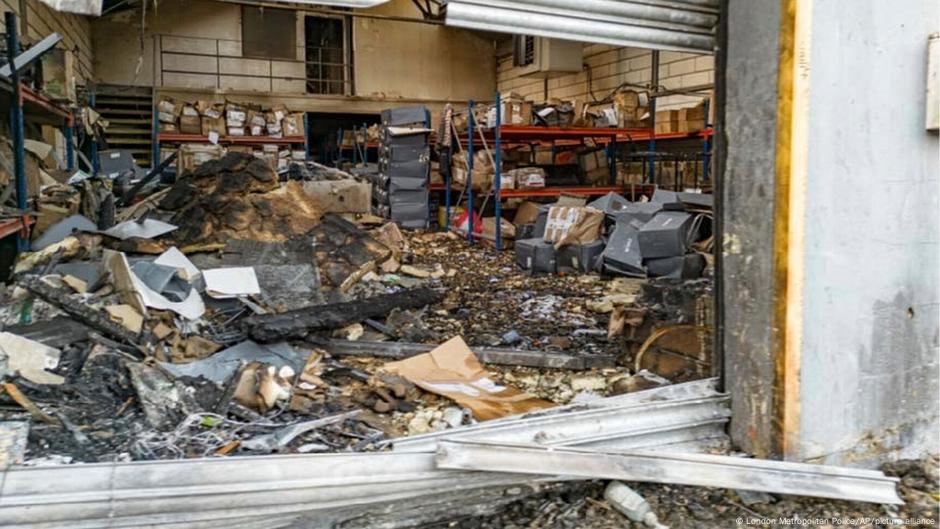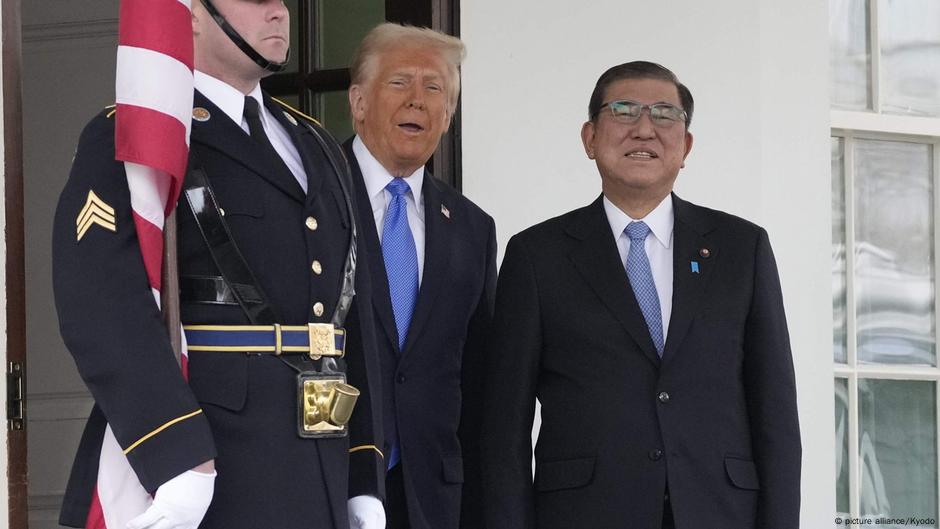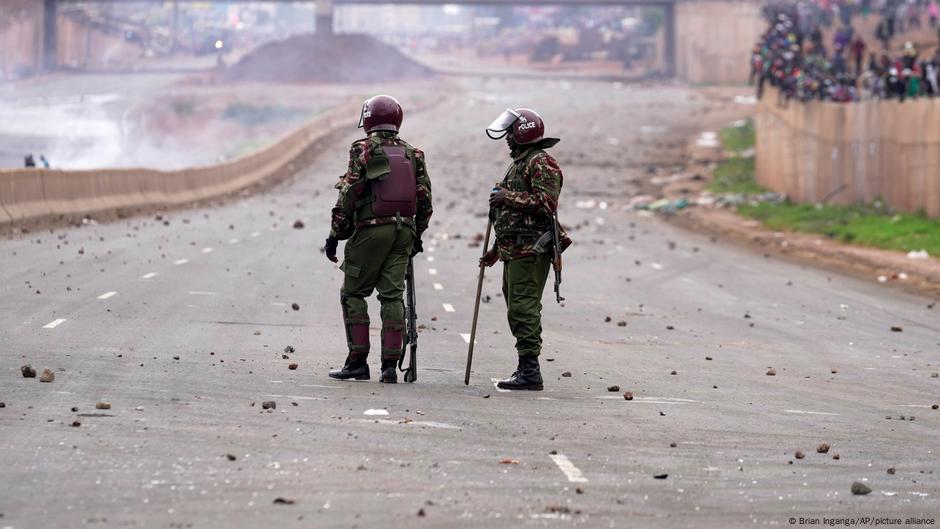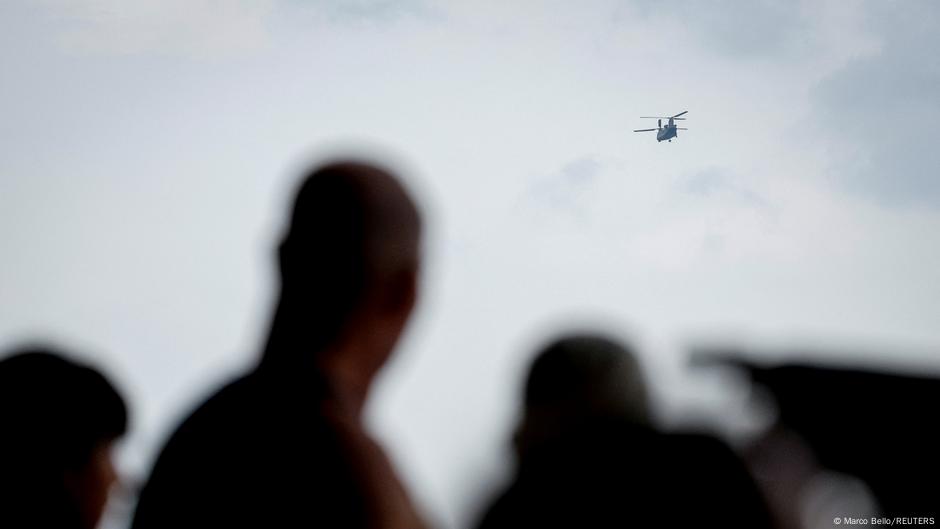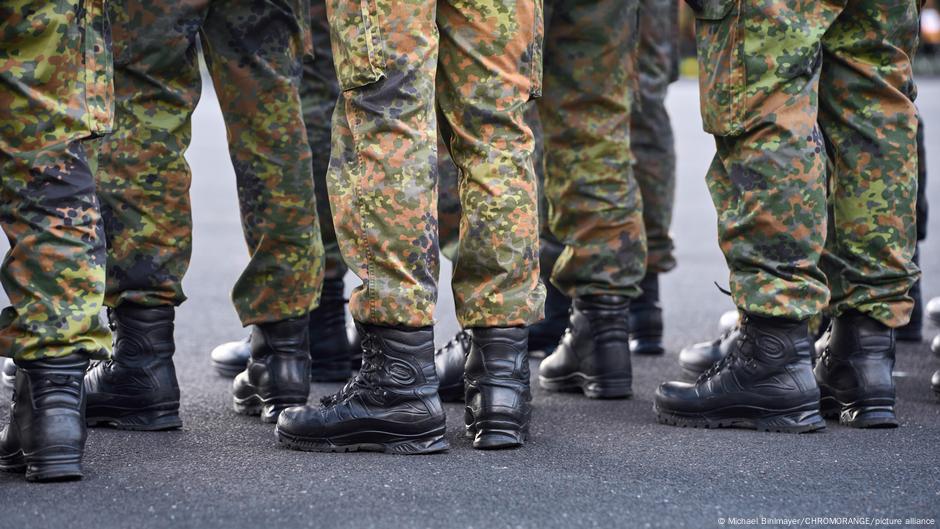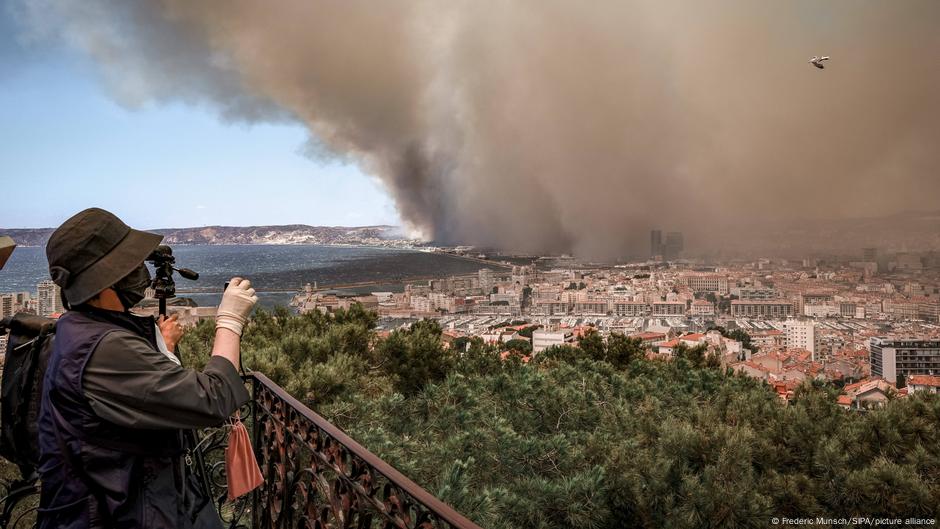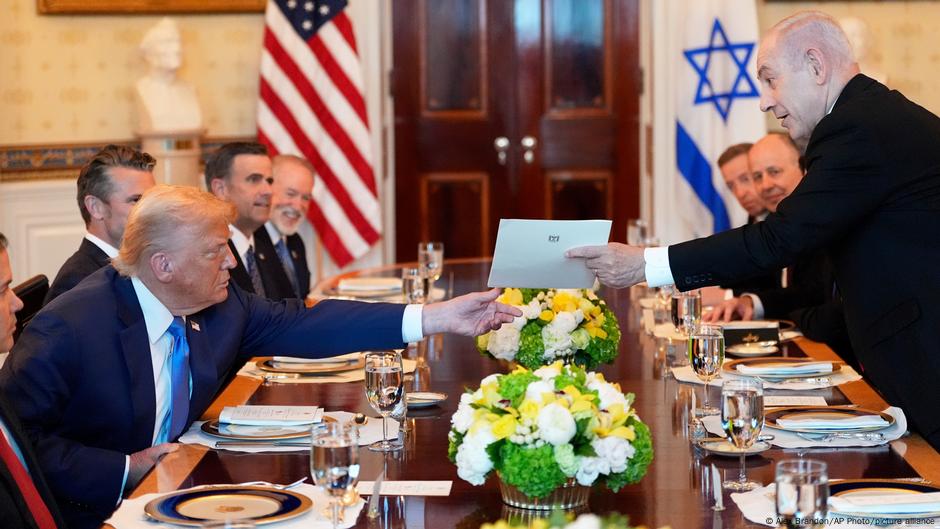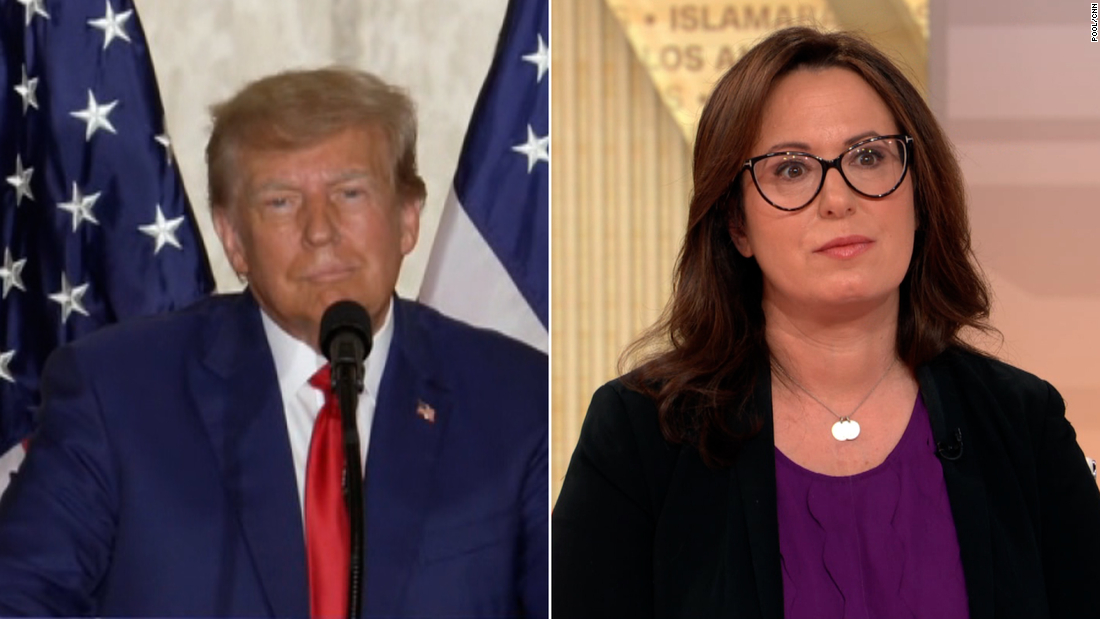PoliticsGermany
Germany updates: Pistorius outlines plans for military draft
Timothy Jones | Richard Connor dpa, AFP, Reuters, AP, epd, KNAPublished 07/08/2025Published July 8, 2025last updated 07/08/2025last updated July 8, 2025
A bill by Defense Minister Boris Pistorius foresees some military conscription in cases of need, German media reported. Follow DW for more.
https://p.dw.com/p/4x6PkPistorius wants to increase the number of available soldiers to 460,000 by 2029Image: Michael Bihlmayer/CHROMORANGE/picture allianceSkip next section What you need to know
What you need to know
A bill to be put forward by Defense Minister Boris Pistorius would allow the Cabinet, with parliamentary agreement, to call up conscripts if a situation arises that requires a rapid boost to the country’s armed forces, media have reported.
The bill is being seen as a compromise between some conservatives’ calls for the return of compulsory military service, which was suspended in Germany in 2011, and the opposition of many leftist lawmakers to such a move.
The German government is planning to have a new military service scheme in place by 2026 in response to the changed security situation in Europe largely due to Russia’s territorial aggression.
Meanwhile, President Frank-Walter Steinmeier is in Latvia for talks focusing on the security situation in the Baltic region, which would seem particularly under threat from Moscow’s imperialist ambitions.
Below, you can read a roundup of news, analysis and background from Germany on Tuesday, July 8.
Skip next section Petition demands Bundestag fly rainbow flag for Pride despite ban07/08/2025July 8, 2025
Petition demands Bundestag fly rainbow flag for Pride despite ban
An online petition is calling on the German parliament to fly the rainbow flag for Pride month celebrations this month after the Bundestag’s new leadership ended the recent tradition.
About 220,000 people have signed the appeal, which was launched by public interest campaign group Campact and handed to lawmakers from the opposition Greens and The Left on Tuesday.
In recent years, the Bundestag has flown the rainbow flag to mark Christopher Street Day (CSD) — Germany’s name for Pride events commemorating the 1969 Stonewall protests in New York.
But Bundestag President Julia Klöckner has ruled that the flag should now only be flown on May 17, the International Day against Homophobia, Biphobia and Transphobia.
The parliament’s LGBTQ+ staff network has also been barred from joining Berlin’s CSD parade on July 26, with management citing neutrality rules.
Chancellor Friedrich Merz has backed Klöckner’s decision, saying the Bundestag is “not a circus tent” for random flag displays. The flag has been flown during Pride month in June since 2022.
Petitioners argue the move is political discrimination against minorities, calling the rainbow flag a vital sign of visibility and recognition for the LGBTQ+ community. Thousands are demanding it be raised at the Bundestag for CSD after all.
Far-right sparks fear at Pride events in Germany
To view this video please enable JavaScript, and consider upgrading to a web browser that supports HTML5 video
https://p.dw.com/p/4x9V8Skip next section Record 17,000 Germany fans set for Euro 2025 clash in Basel07/08/2025July 8, 2025
Record 17,000 Germany fans set for Euro 2025 clash in Basel
The previous record for a women’s game was over 4,800 German fans at the Euro 2022 final in LondonImage: Thor Wegner/DeFodi Images/picture alliance
A record 17,000 Germany fans are expected for the women’s Euro 2025 match against Denmark on Tuesday — more than 12,000 above the previous mark for German support at a women’s game abroad.
The Group C match in Basel, just across the border in Switzerland, will fill St. Jakob Park to its 34,250 capacity, with about half the crowd backing Germany, the country’s football federation said.
The old record was 4,816 fans at the 2022 European Championship women’s final at Wembley, when Germany lost to England.
Basel will also stage this year’s final on July 27, with German fans hoping to return in force. The team started the tournament with a 2-0 win over Poland.
https://p.dw.com/p/4x9HcSkip next section German tourist dies after balcony fall in Mallorca07/08/2025July 8, 2025
German tourist dies after balcony fall in Mallorca
Richard Connor
A young German holidaymaker has died after falling from a hotel balcony on the Spanish island of Mallorca, officials confirmed Tuesday.
The man, believed to be around 20, died of his injuries at Son Espases hospital in Palma, local media Cronica Balear reported.
Police said witnesses reported the tourist may have been trying to jump into the hotel pool from the balcony, but the investigation is ongoing. His identity and hometown have not been officially released.
Spanish media said he was partying with a large group of German tourists in Playa de Palma and returned to the hotel drunk with a friend in the early hours of Saturday.
The friend said he heard a crash before others rushed to help. The man went into cardiac arrest but was resuscitated by emergency crews and later died in the hospital.
So-called “balconing” — risky jumps from hotel balconies into pools or other rooms — has long been a problem on Mallorca, especially in the Magaluf area.
Awareness campaigns have cut accidents there, but serious incidents still happen in Playa de Palma, where fatal falls were also reported last year.
Toxic tourism — Mallorca’s housing crisis
To view this video please enable JavaScript, and consider upgrading to a web browser that supports HTML5 video
https://p.dw.com/p/4x9PxSkip next section WATCH: Poland starts controls at border crossings with Germany07/08/2025July 8, 2025
WATCH: Poland starts controls at border crossings with Germany
According to Polish Prime Minister Donald Tusk, the controls are temporary and aimed at stopping human trafficking and irregular migration. Germany has ramped up immigration controls along its borders, including with Poland, under the new conservative government of Chancellor Friedrich Merz.
For many EU observers in Brussels, the tit-for-tat measures reflect a deeper shift away from European solidarity and toward national self-interest.
Poland starts border controls at border with Germany
To view this video please enable JavaScript, and consider upgrading to a web browser that supports HTML5 video
https://p.dw.com/p/4x9HXSkip next section Defense, infrastructure: Germany plans record investment07/08/2025July 8, 2025
Defense, infrastructure: Germany plans record investment
Sabine KinkartzFinance Minister Lars Klingbeil outlined the government’s budget plans in the BundestagImage: Michael Kappeler/dpa/picture alliance
The Bundestag is debating the government’s budget plans, which see record expenditure and record debt.
The aim is to get the country back on its feet through massive investment.
DW takes a deep dive into Berlin’s budget goals and challenges.
https://p.dw.com/p/4x9HUSkip next section Germany’s Lufthansa Group plans to resume Tel Aviv service from August07/08/2025July 8, 2025
Germany’s Lufthansa Group plans to resume Tel Aviv service from August
Germany’s Lufthansa Group has said it will gradually resume flights by its airlines to Tel Aviv in Israel starting on August 1.
The aviation group canceled flights to Israel in early May after Yemen’s Houthi rebels launched a missile at Israel that landed near Ben Gurion Airport, Israel’s main international airport.
A company spokesman has confirmed the planned resumption of flights, already reported by Israeli media, while stating that the group would still closely monitor the security situation in the Middle East.
The Lufthansa Group includes the airlines Lufthansa, SWISS, Austrian Airlines, Eurowings, ITA Airways, Brussels Airlines and Lufthansa Cargo.
SWISS has decided to suspend flights to Tel Aviv until at least October 25, while Lufthansa’s low-cost subsidiary Eurowings has also canceled Tel Aviv flights until the same date.
While you’re here: Every Tuesday, DW editors round up what is happening in German politics and society. You can sign up here for the weekly email newsletter, Berlin Briefing.
https://p.dw.com/p/4x8HbSkip next section Former Economy Minister Habeck to move to Denmark07/08/2025July 8, 2025
Former Economy Minister Habeck to move to Denmark
Robert Habeck is a former co-leader of the Green Party and a current parliamentarianImage: Michael Kappeler/dpa/picture alliance
German Green politician Robert Habeck has announced his intention of moving to Denmark to work, while saying he was also hoping to take up visiting professorships at universities outside Europe.
Habeck, 55, who held the position of economy minister and vice chancellor in the previous three-way coalition government under Chancellor Olaf Scholz, can speak Danish after spending some time studying in the Scandinavian country.
He has said he would like to work at the Danish Institute for International Studies in Copenhagen.
It is not clear whether he will retain his seat in the German parliament as the member for the northern constituency of Flensburg-Schleswig. Habeck was the Green Party’s candidate for the chancellorship at February elections but withdrew from the party’s leadership echelon after it received just 11.6% of the vote.
From October, he is planning to host a series of discussions at the Berliner Ensemble theater under the title “Habeck live.”
https://p.dw.com/p/4x7psSkip next section German government must honor visa promise made to Afghan family, court says07/08/2025July 8, 2025
German government must honor visa promise made to Afghan family, court says
A German court ruled on Tuesday that an Afghan family previously promised visas to enter Germany under a program for those at risk under the Taliban regime must be allowed to travel to the country.
Berlin’s administrative court said the family had been given a “legally binding” commitment that overrides the conservative-led government’s decision earlier this year to stop the scheme.
The ruling can be appealed by the Foreign Ministry.
After the Taliban returned to power in 2021, Germany established various admission procedures for Afghan nationals considered as being in danger from the Islamist group, which is known to repress civil liberties — most notably, women’s rights.
According to the Foreign Ministry, as of June 20 about 2,400 Afghan nationals are
waiting in Pakistan to receive a visa for Germany, including democracy advocates, judges, female journalists and artists.
The admission schemes were canceled as the German government under conservative Chancellor Friedrich Merz takes an increasingly hard line on migration in general.
More on the court ruling here.
Afghan refugee family faces migration reality in Germany
To view this video please enable JavaScript, and consider upgrading to a web browser that supports HTML5 video
https://p.dw.com/p/4x7BcSkip next section Germany summons China ambassador over laser incident07/08/2025July 8, 2025
Germany summons China ambassador over laser incident
Germany has accused the Chinese military of targeting a German aircraft with a laser as the aircraft took part in a EU security operation and summoned China’s ambassador over the incident.
Vezi toate știrile de pe actualizări partea germaniei
“Putting German personnel at risk and disrupting the operation is completely unacceptable,” the Foreign Ministry wrote on social media platform X, formerly Twitter.
No further information was immediately available.
The aircraft was involved in the EU’s ASPIDES mission, which aims to help protect freedom of navigation and maritime security, especially for commercial vessels in the Red Sea, the Indian Ocean and the Gulf region.
Read the full story of the German aircraft laser targeting here.
https://p.dw.com/p/4x6wLSkip next section Flights ever more expensive from German airports — analysis07/08/2025July 8, 2025
Flights ever more expensive from German airports — analysis
Prices for air passengers traveling from airports in Germany within Europe are continuing to rise, even those for budget airlines, according to an analysis by the German Aerospace Centre (DLR).
The average cost now of a one-way tickets without luggage is between just under €67 (
Lufthansa subsidiary Eurowings is the most expensive provider, charging an average of €130 for a one-way flight, up from €110 last year.
The analysis showed that advance planning is of advantage, with bookings made three months ahead costing in the range of €46 to €90, while those at short notice cost between €119 to €169.
The factors driving the price increases are a continuing shortage of flights, high taxes and fees, according to the analysis.
https://p.dw.com/p/4x6pOSkip next section Most people in Germany want ban on private fireworks — survey07/08/2025July 8, 2025
Most people in Germany want ban on private fireworks — survey
Altogether 59% of people living in Germany would like to see a ban on private fireworks similar to the one set to be introduced in the neighboring Netherlands, a survey released on Tuesday showed.
The survey by the polling institute Forsa and commissioned by the Stern magazine
showed that women are more in favor of such a ban than men (67% to 51%) and that a small majority (51%) of young men from the 18-29 age group oppose one.
Supporters of the far-left Left Party were the most likely to back a ban, with 86% in favor, while 60% of people who vote for the far-right Alternative for Germany (AfD) party were against it.
The Netherlands will ban private individuals from setting off fireworks as of New Year 2026/2027.
The prohibition came partly in response to increasing violence in the country associated with New Year’s fireworks, including attacks on police officers, firefighters and emergency workers.
A number of people are also injured or even killed each year while setting off fireworks.
https://p.dw.com/p/4x6dFSkip next section President Steinmeier talks security in Latvia on last day of Baltic trip07/08/2025July 8, 2025
President Steinmeier talks security in Latvia on last day of Baltic trip
German President Frank-Walter Steinmeier is wrapping up a three-day trip to the Baltic region with talks in the Latvian capital, Riga.
He is set to meet Latvian President Edgars Rinkevics and Prime Minister Evika Silina for discussions that are expected to center on the security situation in the region against the backdrop of Russia’s ongoing full-scale invasion of Ukraine.
During his stay in Riga, Steinmeier is also due to visit the Braunschweig, a German corvette currently stationed in the city as it participates in the US-led Baltic Operations exercise.
Latvia, a former Soviet republic, shares the fear of other Baltic states that it could become the target of Russia’s expansionist policies under President Vladimir Putin.
The country is a member of both the EU and NATO.
On Sunday, Steinmeier was in Lithuania as the country celebrated its national day.
Among other things, he visited the headquarters of the Armored Brigade 45 (Panzerbrigade 45) in the capital, Vilnius, which was activated in April of this year as the first German brigade-sized unit to be based abroad permanently since World War II.
https://p.dw.com/p/4x6cjSkip next section Military service bill foresees emergency draft option07/08/2025July 8, 2025
Military service bill foresees emergency draft option
A draft bill devised by German Defense Minister Boris Pistorius would allow the Cabinet and parliament to call up conscripts in certain security situations, media have reported.
Such conscription could occur “when the defense situation requires it” and there are not enough volunteers, the news magazine Der Spiegel said, citing the 50-page text of the bill.
The bill also aims to make voluntary service more attractive, with volunteers receiving more than €2,000 (the Spiegel said.
Under new NATO guidelines, the German Bundeswehr would need altogether 460,000 troops in the case of a conflict.
Currently, Germany has more than 182,000 active soldiers and more than 49,000 active reservists. Pistorius would like to see at least 60,000 more active soldiers and altogether 200,000 reservists.
Many in Pistorius’ Social Democratic Party (SPD), particularly its youth wing, oppose the reintroduction of compulsory military service that is advocated by a number of conservative politicians, and the bill is being seen as a compromise between the two viewpoints.
Germany suspended compulsory military service in 2011.
While you’re here: Every Tuesday, DW editors round up what is happening in German politics and society. You can sign up here for the weekly email newsletter, Berlin Briefing.
https://p.dw.com/p/4x6XSSkip next section Welcome to our coverage07/08/2025July 8, 2025
Welcome to our coverage
Timothy Jones | Elizabeth Schumacher Editor
Einen wunderschönen Guten Morgen from the DW newsroom in Bonn.
Some of Tuesday’s news from Germany relates to the security situation amid Russia’s growing territorial aggression, with a new military service scheme on the way and the president in Latvia to talk defense matters.
But this DW blog will also bring you up-to-date news, analysis and explainers on other stories large and small from Europe’s biggest economy.
We wish you enjoyable reading!
https://p.dw.com/p/4x6YATimothy Jones Writer, translator and editor with DW’s online news team.Richard Connor Reporting on stories from around the world, with a particular focus on Europe — especially Germany.Send us your feedback
Sursa: DW

